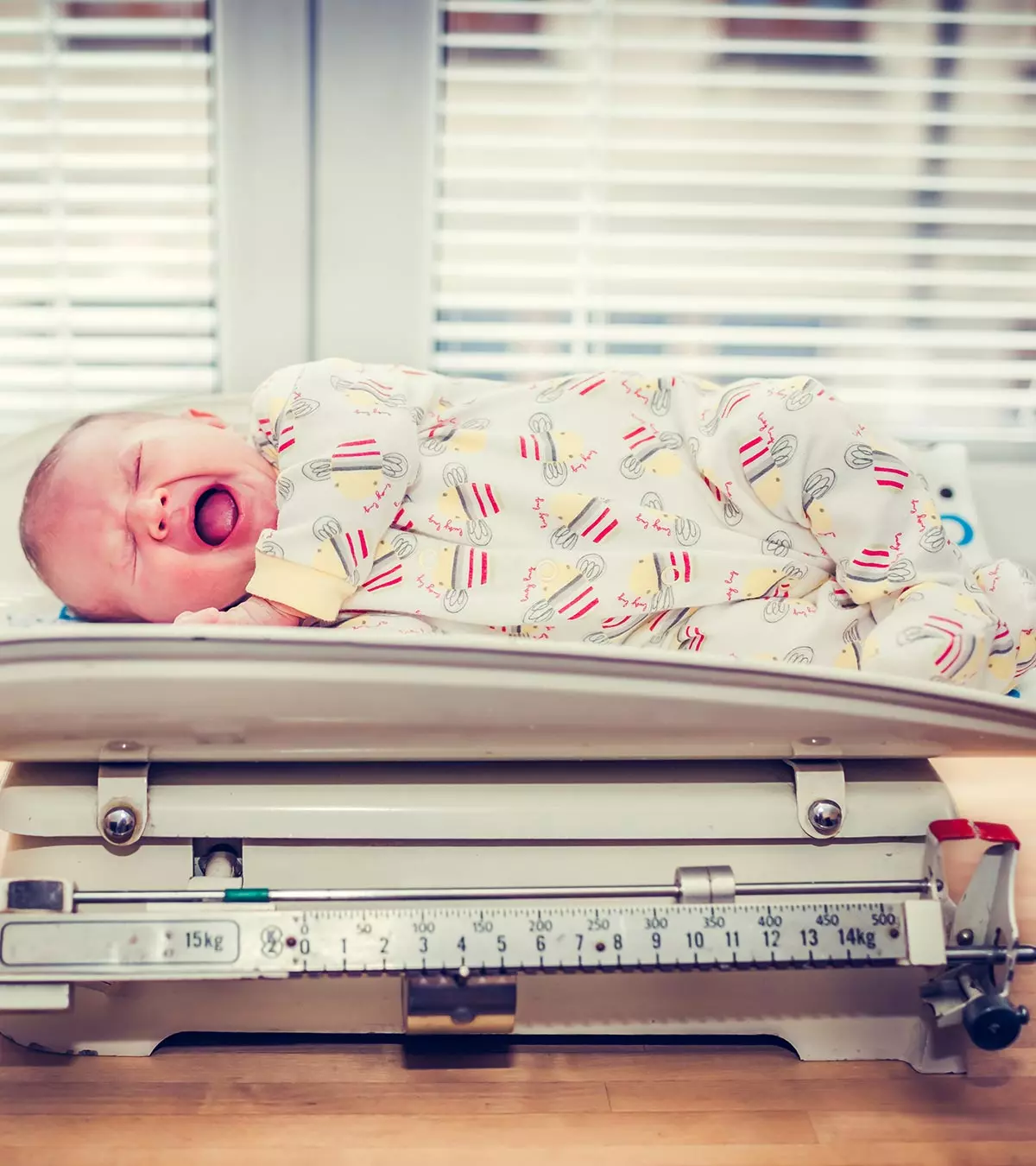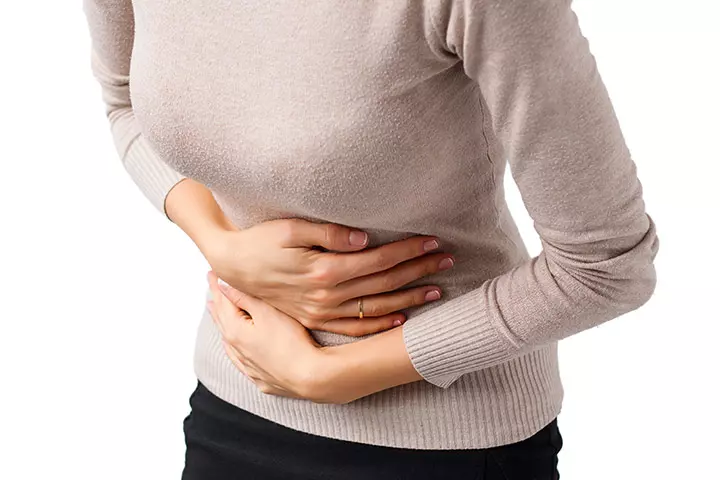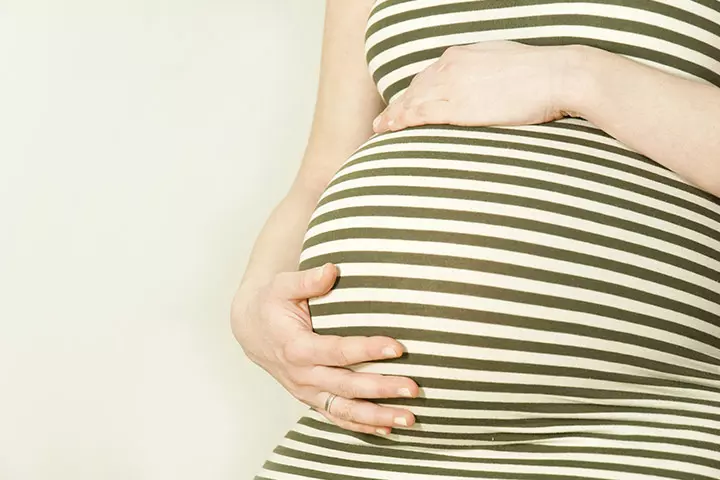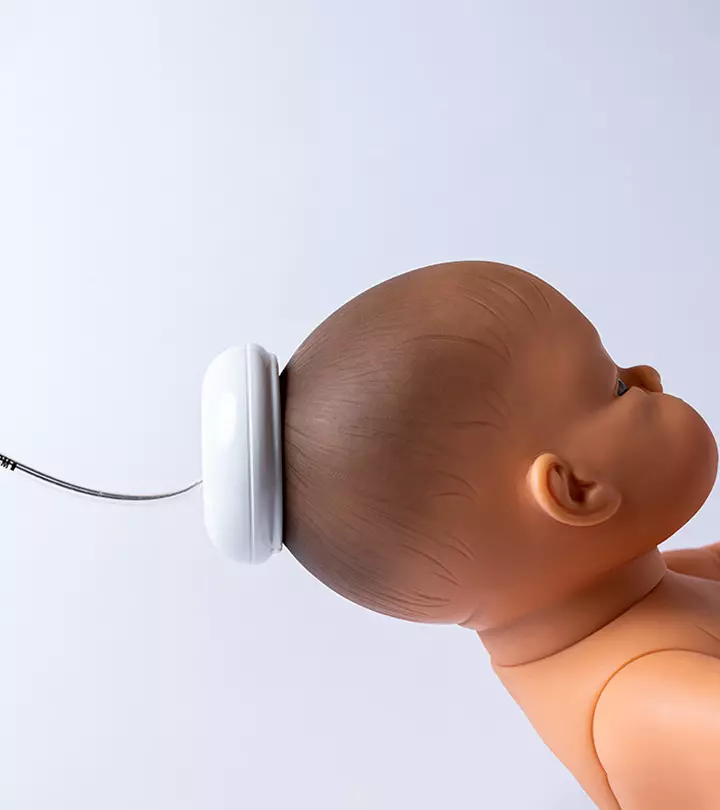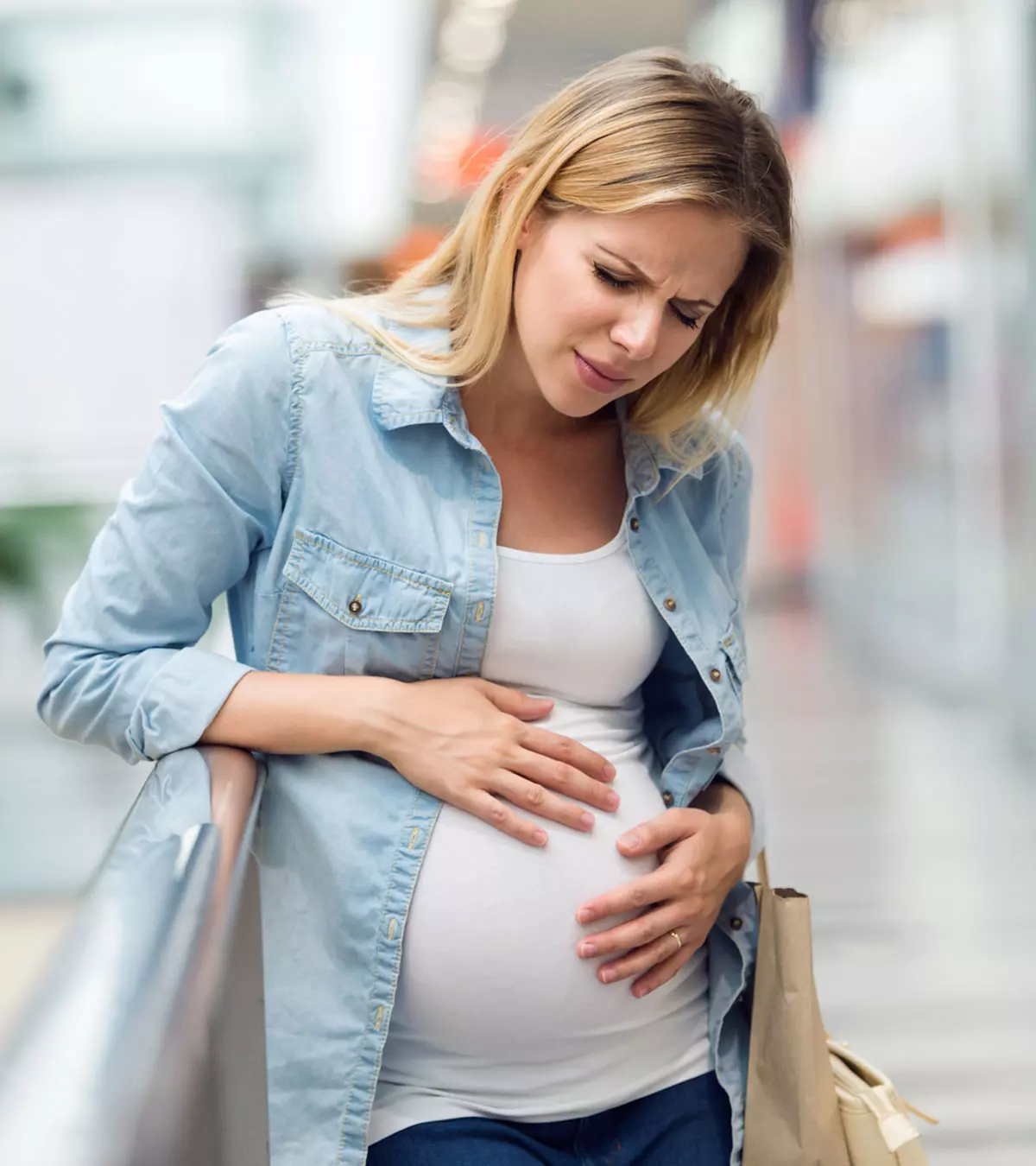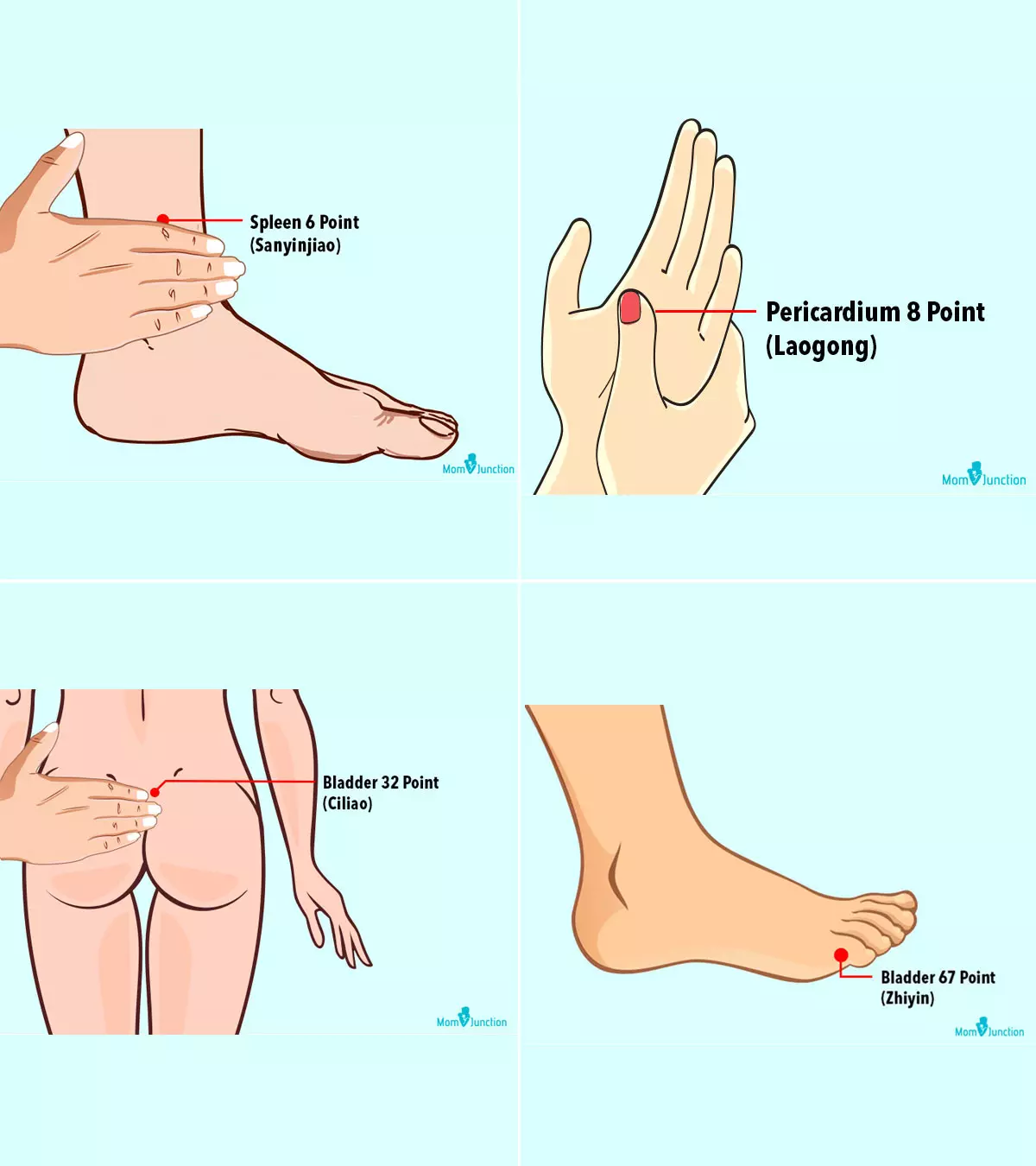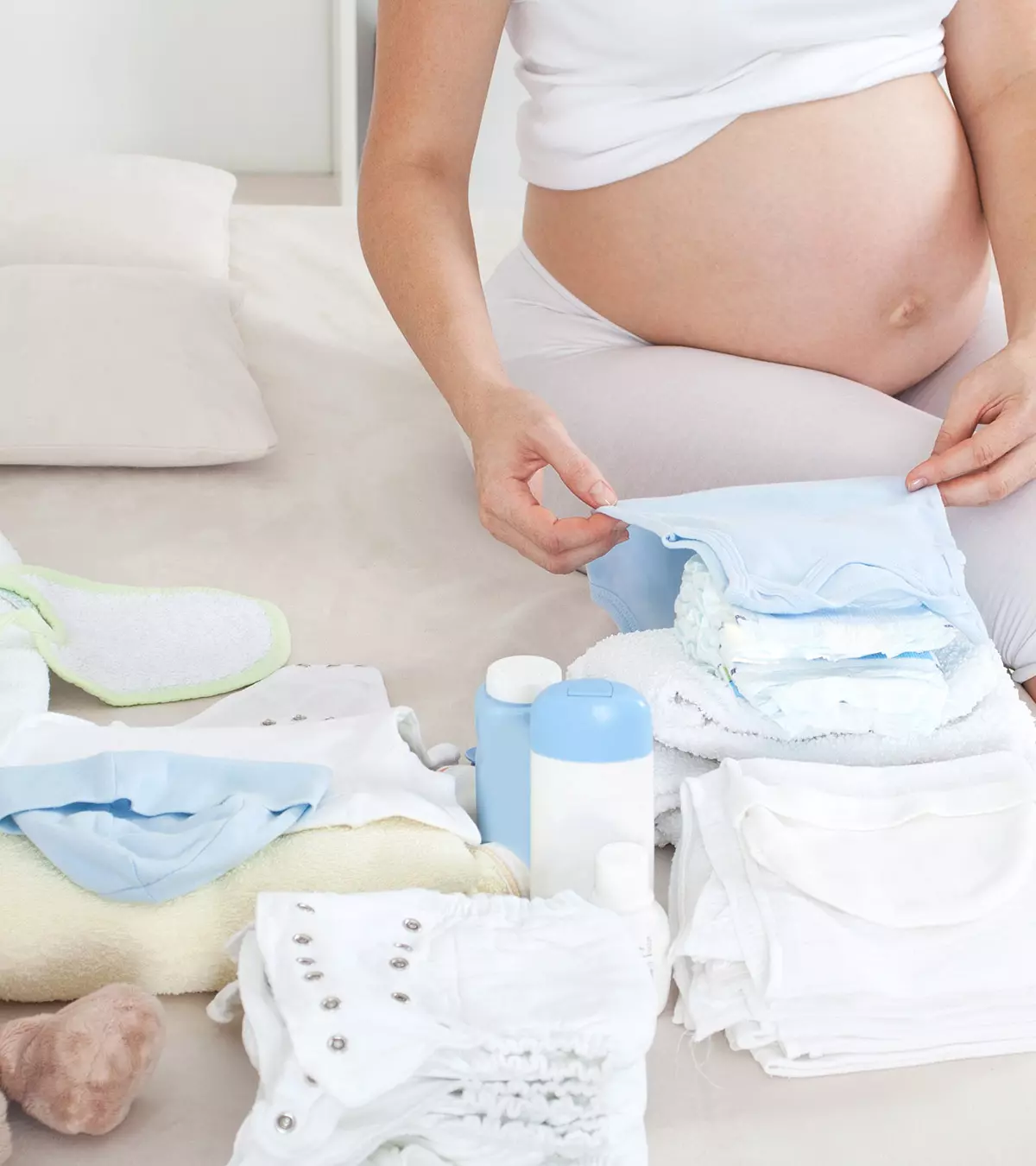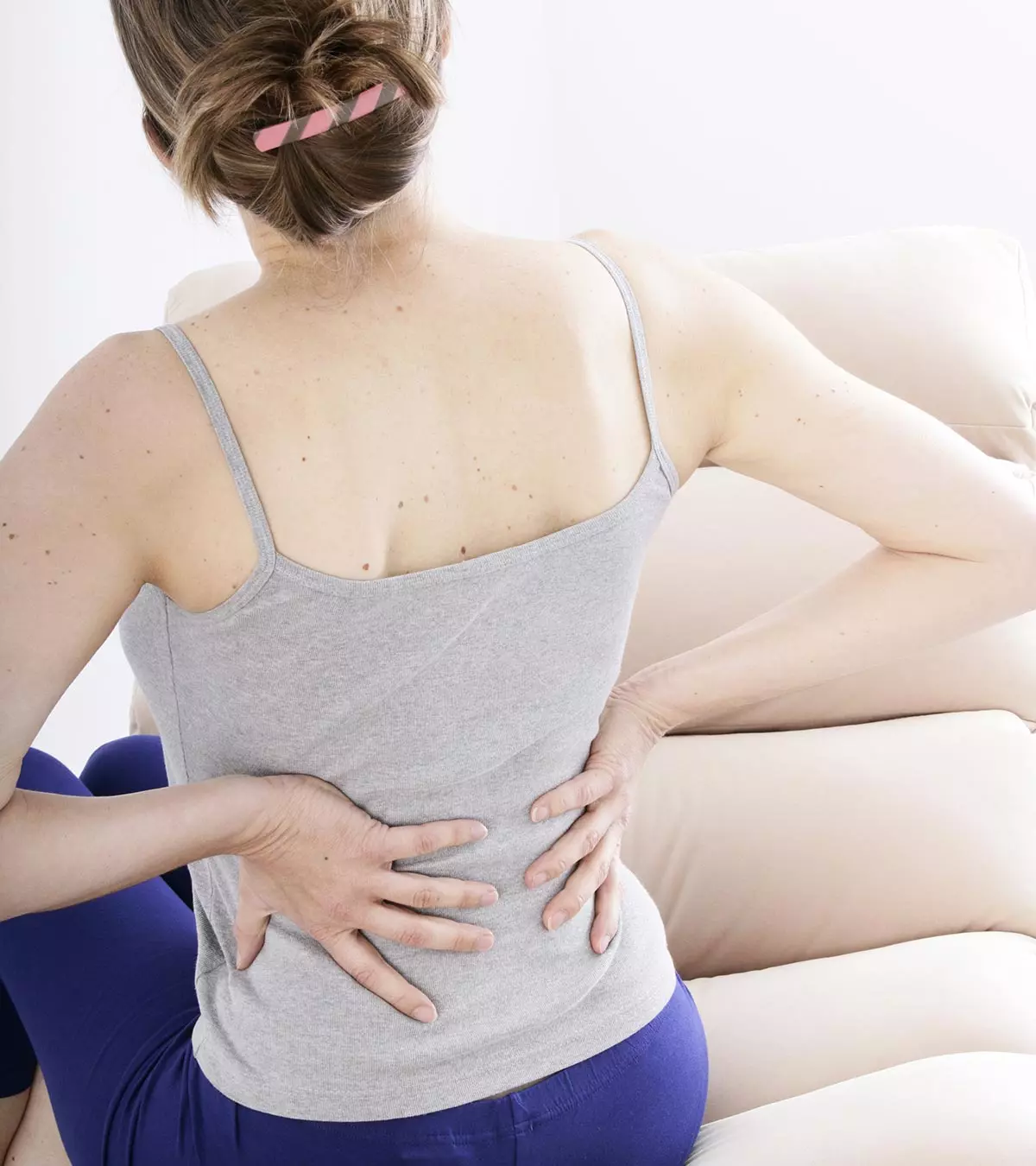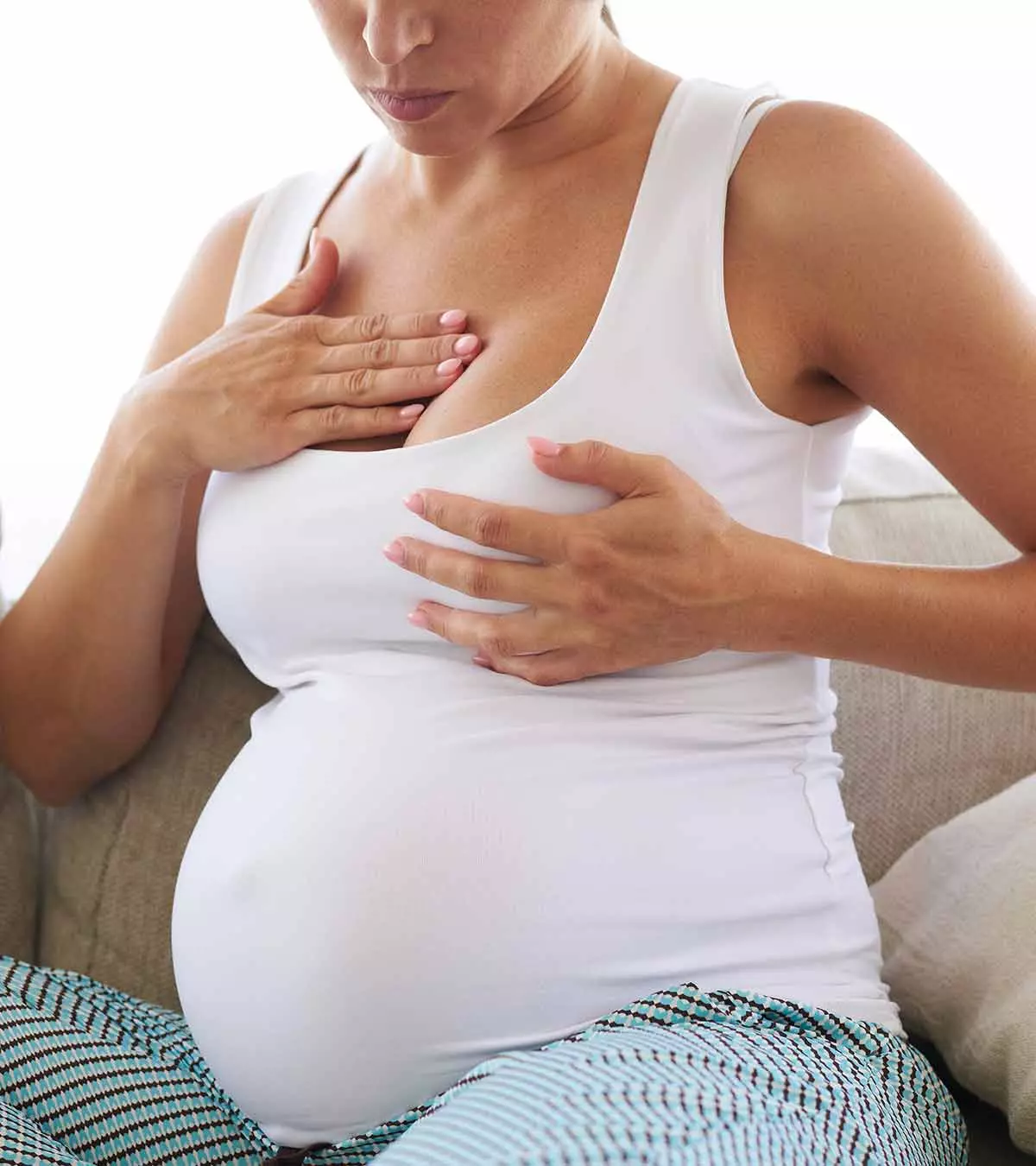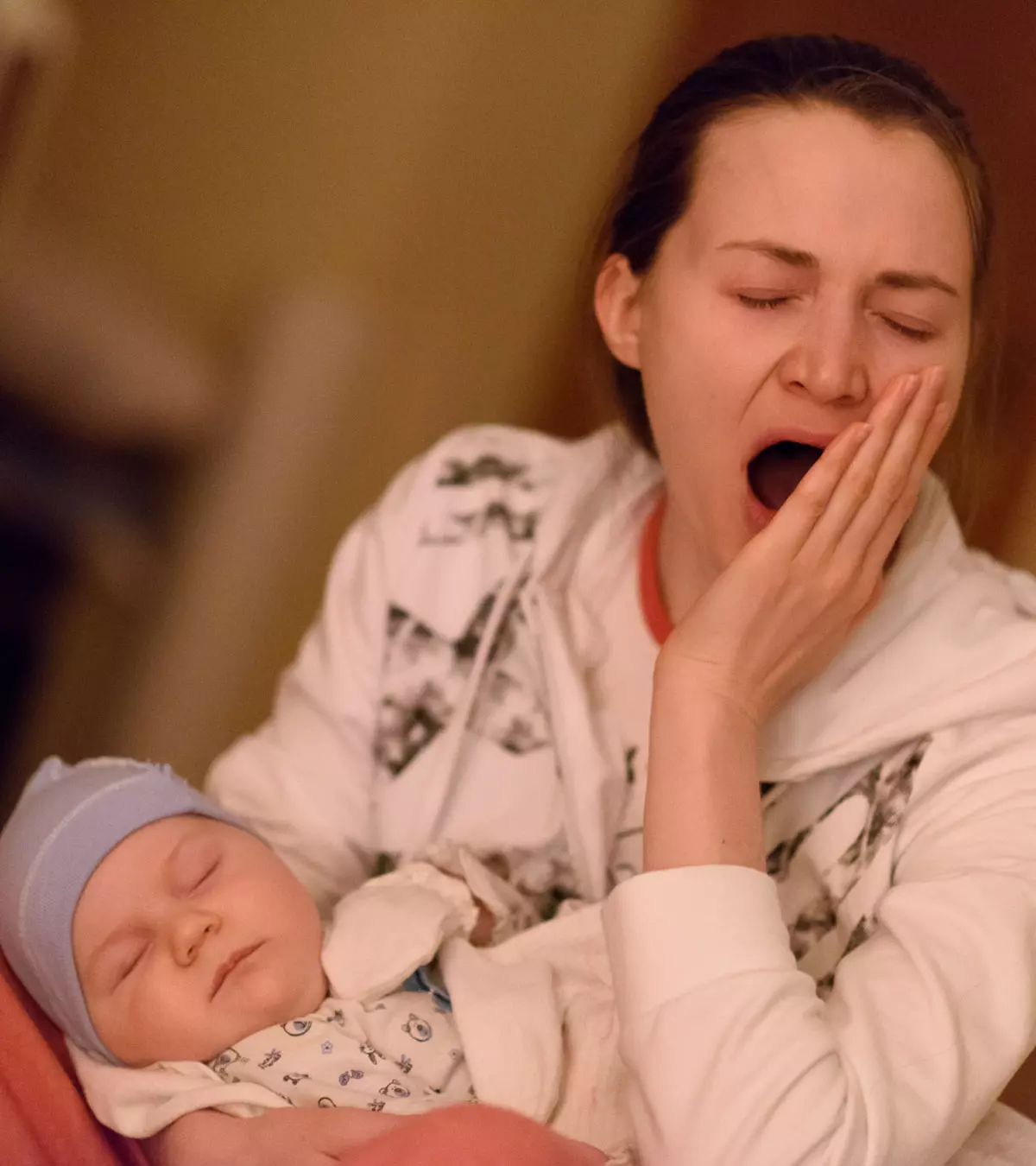
Image: Shutterstock
Childbirth is a laborious and tiring process that often extends into the postpartum period as well. So how long does postpartum fatigue last? Most of the time, postpartum fatigue is a form of adaptive response to the energy lost and extra bodily demands that last the duration of pregnancy. In some cases, however, the fatigue might also be a sign of an underlying psychiatric or medical illness. Read on to know more about the causes, signs, diagnosis, and treatment of fatigue after your delivery.

Key Pointers
- After delivery, women may experience postpartum fatigue and extreme tiredness for weeks or even months.
- The causes of postpartum fatigue could be delivering a baby, breastfeeding, and lack of sleep while caring for a newborn.
- Fatigue could also be a symptom of underlying conditions such as postpartum depression, anemia, or hypothyroidism.
- To manage postpartum fatigue, women can follow certain practices such as restful sleep, healthy eating, staying hydrated, regular exercise, and sharing responsibilities.
- However, if women experience signs of depression or prolonged fatigue along with other symptoms, they should seek medical help.
Is It Normal To Feel Fatigued Several Weeks After Delivering The Baby?
Yes, the feeling of fatigue and exhaustion are common and may last weeks to even months after the child’s birth. The rate of fatigue increases from 20% in the antepartum period to 50-64% in the postpartum period (1).
How tired you are also depends on how well you adjust to the baby’s napping schedule and how much help you have at home.
What Are The Causes Of Postpartum Fatigue?
Several factors contribute to lethargy or fatigue several mothers experience during the postpartum period (2).
- Birthing process: It can take you hours and a lot of energy to push the baby out of the birthing canal. Recovering from a C-section, which is a major abdominal surgery, can also make you tired quickly.
 Quick fact
Quick fact- Lack of sleep: Sleep at night is scarce with a newborn in the house, especially if you are the mom! You may try to nap when your baby is sleeping. But then, daytime is the only time for you to get things done, which means you will be sleep deprived and fatigued for most of the time. Sleeplessness due to stress and postpartum hormonal changes is another issue that can also contribute to postpartum fatigue.

- Depression: Fatigue could be a symptom of postpartum depression. Studies indicate that women who are extremely tired or fatigued after one to two weeks of childbirth could develop and report symptoms of postpartum depression four weeks post childbirth (3).
- Breastfeeding: Breastfeeding needs you to consume extra calories to sustain yourself as well as your baby, and can strain you physically (4).
- Anemia: Another primary cause of postpartum fatigue is anemia, which results from blood loss at the time of delivery. According to the Pan American Health Organization, the prevalence of anemia among women aged 15-49 years in the US was 15.4% in 2019. You can rebuild the hemoglobin levels with iron supplements or iron-rich foods. But if you continue to experience exhaustion and debility, seek the help of a doctor (5).
- Hypothyroidism: Some women may develop an underactive thyroid gland in one to four months after delivery. Postpartum fatigue will be a symptom of this condition, which needs medical intervention, and a healthy diet and lifestyle (6).
 Point to consider
Point to consider
Apart from these, first pregnancy, decreasing hormone levels, colic in the newborn, and poor diet and exercise can also contribute to postnatal fatigue. Since weariness is more of a symptom than a condition, it can only be managed but not treated.
Laurie Concepcion, a mother of two children and a blogger, shares how she experienced postpartum fatigue, “Cluster feedings, constant diaper changing, bath meltdowns, and comforting seemed to be my main reasons for existence. I often felt torn between trying to eat, shower, or sleep while she slept. I was neglecting my postpartum care. The random postpartum depression and anxiety really caught me off guard. It snuck up on me. The changes in hormones felt crazy. I was not myself. It’s like I had been jacked up on estrogen for 9 months and suddenly had none, and it was causing these intense mood swings, anxious thoughts, and anxiety. I wanted to be chill and couldn’t be chill (ⅰ).’’
How To Deal With Postpartum Fatigue?
These simple tips can help you cope with physical, mental, and emotional fatigue or enervation (7).
- Sleep while your baby sleeps: Try sleeping when your baby does, even if it means sleeping during the day or losing the time to catch up with household chores. If you are worried about sleeping for too long, use an alarm.

- Try relaxation exercises: Practicing deep relaxation techniques for five to ten minutes every day can leave you refreshed. Start with simple relaxation exercises such as breathing and learn other techniques online or by reading books.
- Drink plenty of fluids: Staying hydrated gives you the energy you need in a day and also boosts your mood. According to the CDC, consuming sufficient water will regulate the body temperature, lubricate joints, protect the spinal cord, and remove wastes through perspiration, urination, and stools.
- Choose guests wisely: To avoid unnecessary strain that can trigger feelings of listlessness, it is perfectly fine to say no to visits or an extended stay of guests. Be choosy about who you want to spend time with, as being with the right people will make a difference. Bond with your little one instead of other people and see how rewarding it would be for you and your baby..
- Follow a perfect diet: Even if you do not have enough time for yourself, try to make healthy food choices to ward off postpartum fatigue. Include complex carbohydrates and proteins, and have the vitamin supplements prescribed by the doctor. Stop worrying about weight gain as this is not the right time to go on a crash diet. Nevertheless, skip sweets and caffeine.

Image: ShutterStock - Be aware of postnatal depression: If you are experiencing lassitude even after resting well, or are unable to sleep at night when your baby is asleep, it could be due to postnatal depression. It is associated with other symptoms of feeling low and hopeless, and you need medical support.
 Quick tip
Quick tipWhen To See A Doctor?

Go to a doctor if:
- You have lost interest in things (postpartum depression)
- There is severe blood loss (anemia)
- You experience prostration (extreme weariness or weakness) along with unexplained weight gain, constipation, and dry skin (hypothyroidism)
Next, we address a few common queries about postpartum fatigue.
Frequently Asked Questions
1. What is chronic fatigue syndrome after pregnancy?
Chronic fatigue syndrome (CFS) is a severe, complex, and debilitating illness that affects men, women, and children of all races and ages. It is also known as myalgic encephalomyelitis (ME) and chronic fatigue immune dysfunction syndrome (CFIDS). Though similar to postpartum fatigue, this is associated with a wide range of neurological, immune, cardiovascular and endocrine symptoms (8).
2. What causes postpartum adrenal fatigue?
During the childbirth, there is a drop in the progesteroneiA female reproductive hormone that plays an important role in menstruation, pregnancy, and breastfeeding. levels after the expulsion of the placentaiA temporary organ that connects the baby to the uterus and provides oxygen and nutrients to it. . But the estrogen levels remain high at the time, causing an imbalance in the postpartum hormones and resulting in estrogeniA sex hormone responsible for the development of female sexual characteristics. dominance. This affects the adrenal glands and results in adrenal fatigue. Postpartum adrenal fatigue is associated with symptoms such as body aches, sleep disturbances, nervousness and digestion issues (9).
3. What is post-exertional malaise?
Post-exertional malaise (PEM) is the worsening of symptoms of chronic fatigue syndrome, which develops as a result of physical or mental exertion (10).
4. When does energy return postpartum?
Postpartum fatigue may last for six months. However, this timeline may vary from one individual to another and depends on several factors, such as the mode of delivery and the woman’s overall health. The fatigue intensity may decrease between the first one to four months (14). Eating a well-balanced diet, staying hydrated, and taking adequate rest are a few ways to hasten your postpartum recovery process.
Childbirth is a physically and mentally exhaustive process. Thus, feeling fatigued for weeks or months after delivery is normal. However, how long postpartum fatigue lasts and how tired you feel depends on several factors, including how you take care of yourself. So go slow and listen to your body. Eat healthily, stay hydrated, take ample rest, and seek support whenever you feel overtired. If fatigue is accompanied by additional issues such as unexplained weight loss, constipation, and disinterest in things you earlier liked doing, consult your doctor. Remember, recovering from childbirth takes time and consistent efforts.
Infographic: Reasons Why Mothers May Feel Fatigued After Childbirth
Experiencing fatigue after giving birth is common among most new moms. While adjusting to the demands of caring for a newborn, mothers must take care of their health. The following infographic explains potential reasons a woman may feel fatigued after childbirth.
Some thing wrong with infographic shortcode. please verify shortcode syntax
Illustration: Important Measures To Tackle Postpartum Fatigue
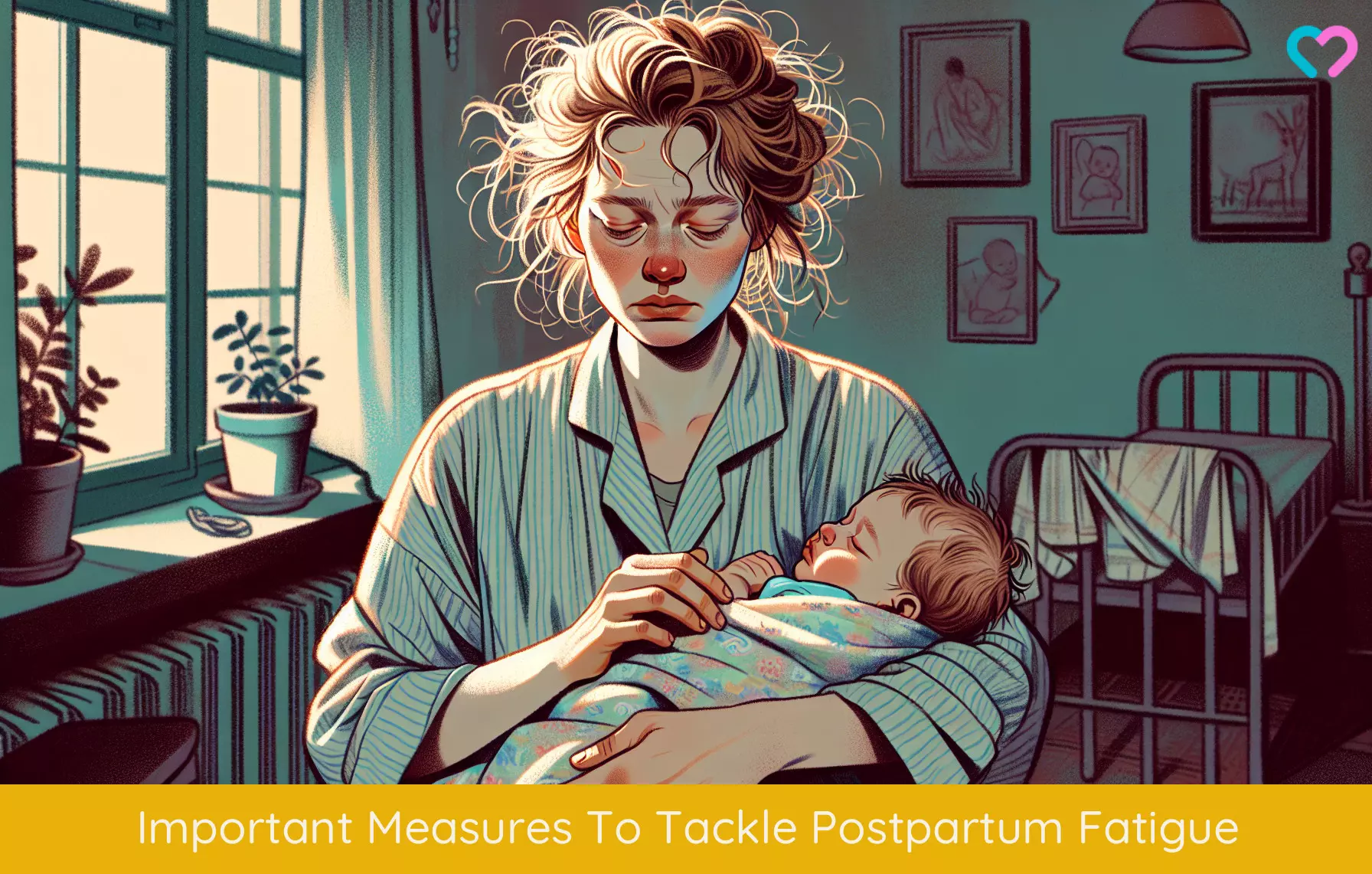
Image: Dall·E/MomJunction Design Team
Feeling exhausted after childbirth is common. Check out our video for tips on how to fight fatigue and get back to feeling energized!
Personal Experience: Source
MomJunction articles include first-hand experiences to provide you with better insights through real-life narratives. Here are the sources of personal accounts referenced in this article.
i. My postpartum experience: What I didn’t expect.https://medium.com/@adulting101/my-postpartum-experience-what-i-didnt-expect-1948eaee49b9
References
1. N Khayamim, P Bahadoran, T Mehrabi; Relationship between fatigue and sleepiness with general health of mothers in the postpartum period; Iran J Nurs Midwifery Res. (2016)
2. J A Maloni, S Park; Postpartum Symptoms After Antepartum Bed Rest; JOGNN (2005)
3. Depression during pregnancy and after; Harvard Health Publishing (2017)
4. S Callahan et al., (2006); Fatigue and Breastfeeding: An Inevitable Partnership?; Journal of Human Lactation
5. M H Kryger, T Roth, William C; Principles and Practice of Sleep Medicine E-Book
6. D Trentini, M Shomon; Your Healthy Pregnancy with Thyroid Disease: A Guide to Fertility, Pregnancy, and Postpartum Wellness; eBook
7. S S Murray, E S McKinney; Foundations of Maternal-Newborn and Women’s Health Nursing – E-Book
8. R Underhill; Pregnancy in Women with Chronic Fatigue Syndrome (ME/CFS); NJCFSA (2009)
9. D M Cutillo; The Hormone “Shift”: Using Natural Hormone Balancing for Your… Mood, Weight, Sleep & Female Health; eBook
10. CPET and the Physiology of ME/CFS; Cornell Center for Enervating NeuroImmune Disease
11. C-Section Recovery Timeline and Aftercare.
12. Hsieh CH et al.;Factors influencing postpartum fatigue in vaginal-birth women: testing a path modelLa Leche League International
13. PositioningLa Leche League International
14. Hiroko Iwata, et al. (2018); Course of maternal fatigue and its associated factors during the first 6 months postpartum: a prospective cohort study; Wiley Online Library
Community Experiences
Join the conversation and become a part of our nurturing community! Share your stories, experiences, and insights to connect with fellow parents.
Read full bio of Dr. Burcu Saygan Karamürsel
Read full bio of Rebecca Malachi
Read full bio of Swati Patwal
Read full bio of Aneesha Amonz






